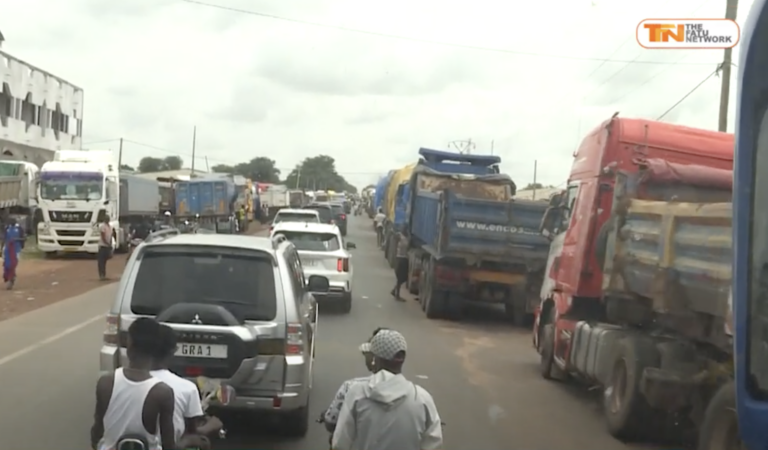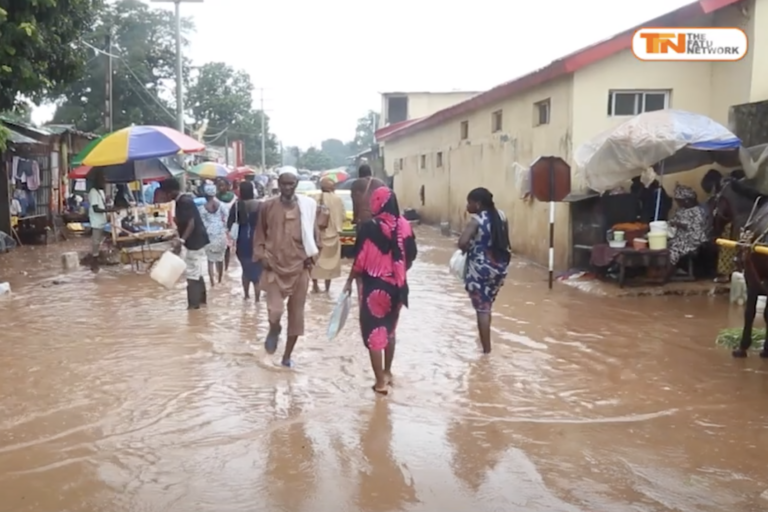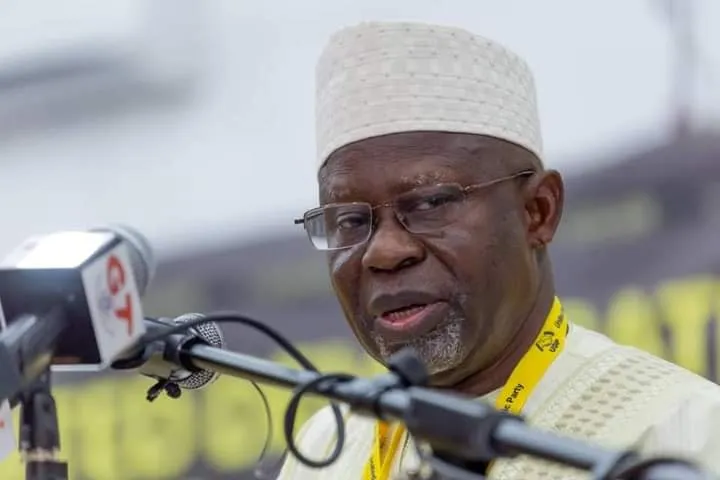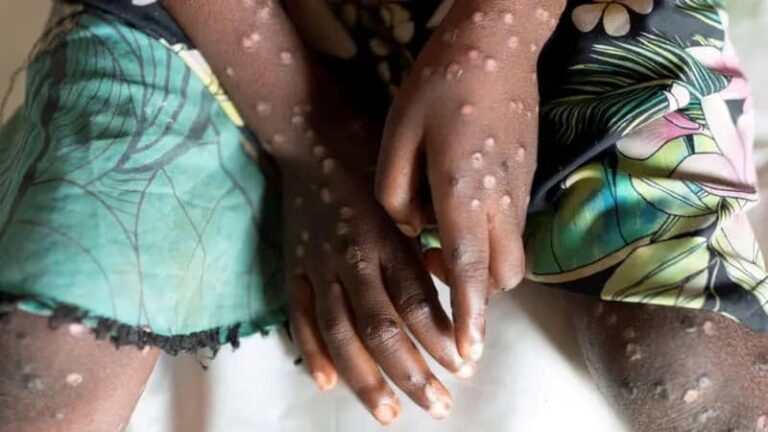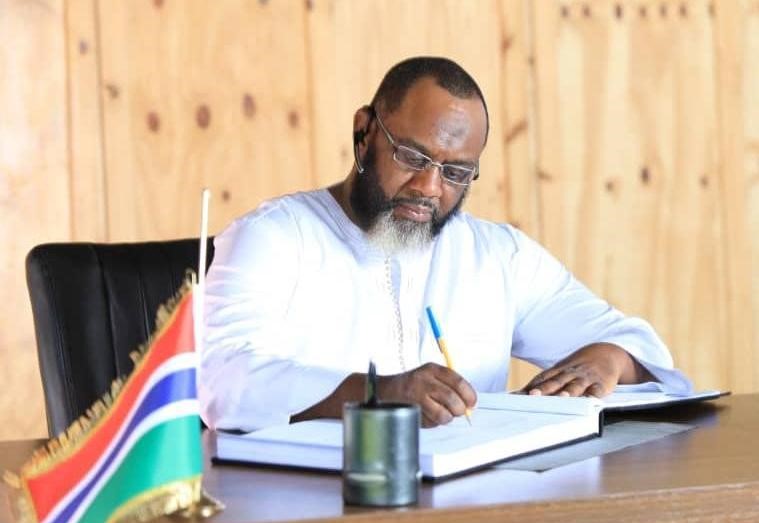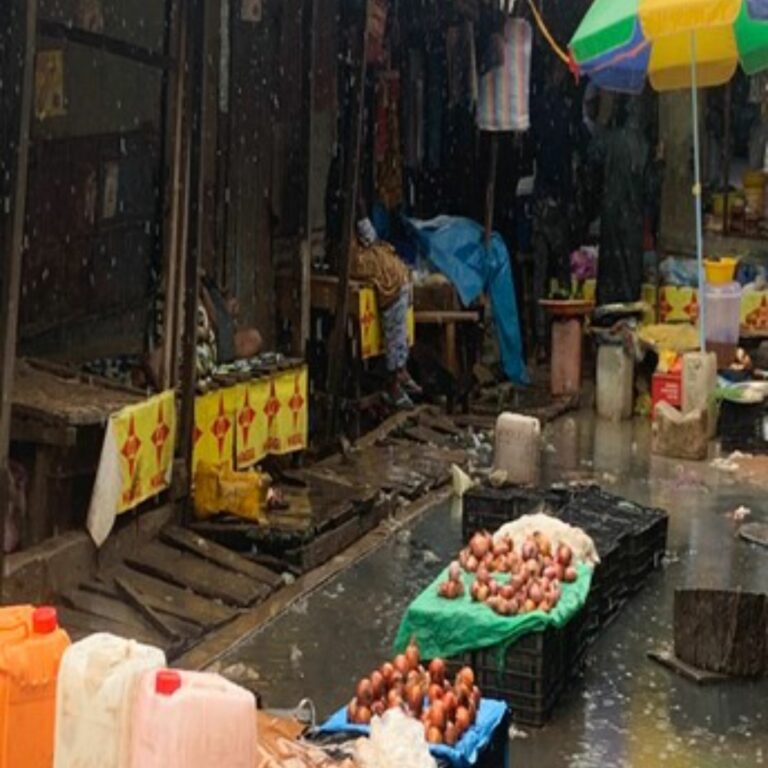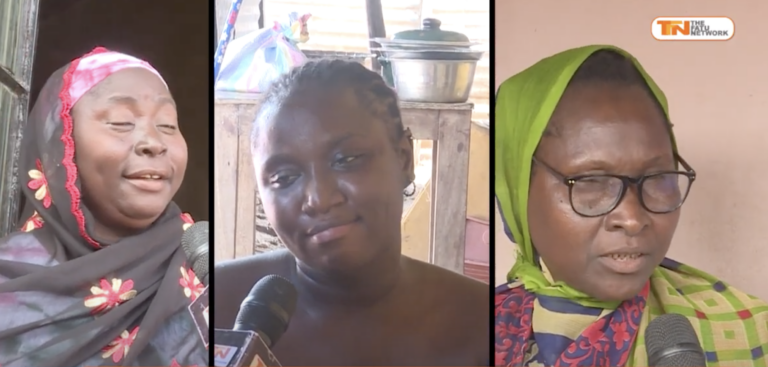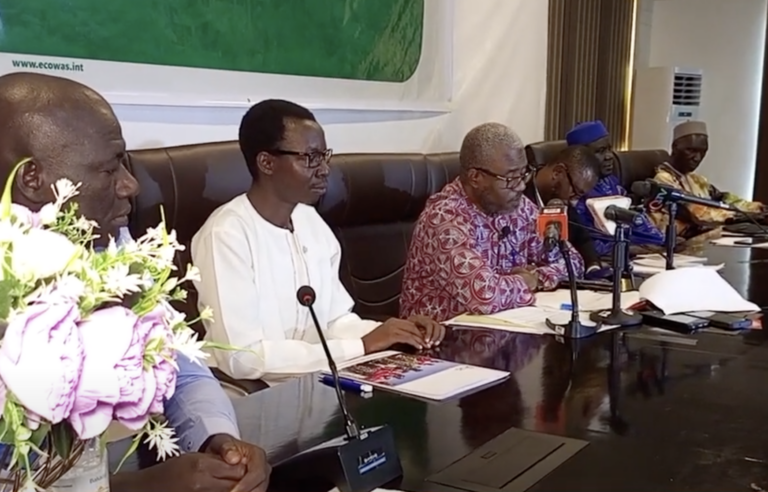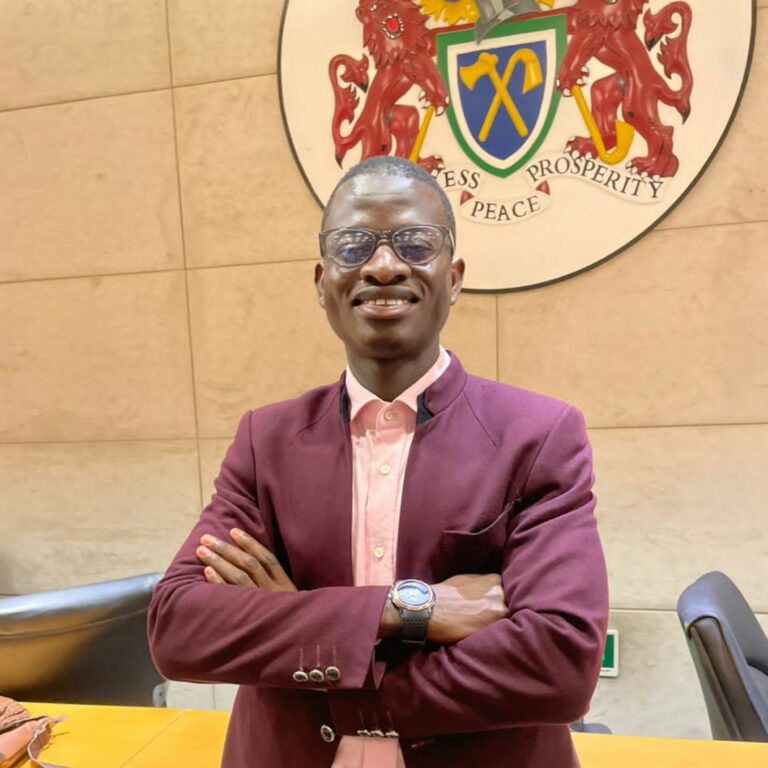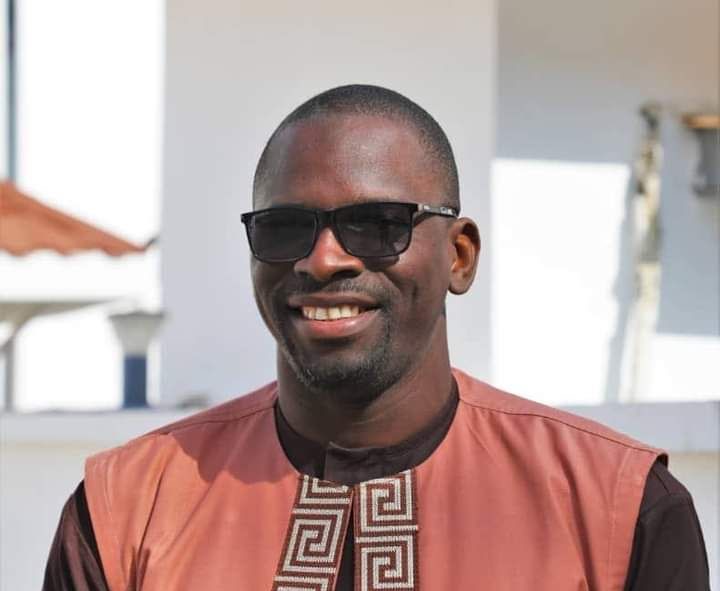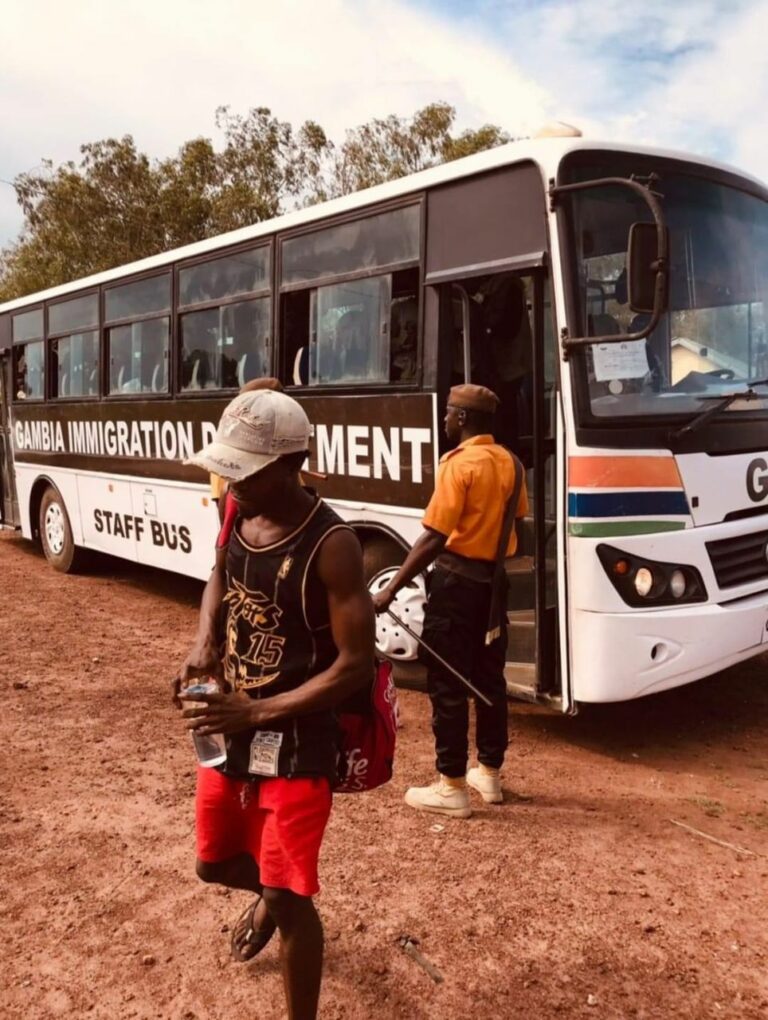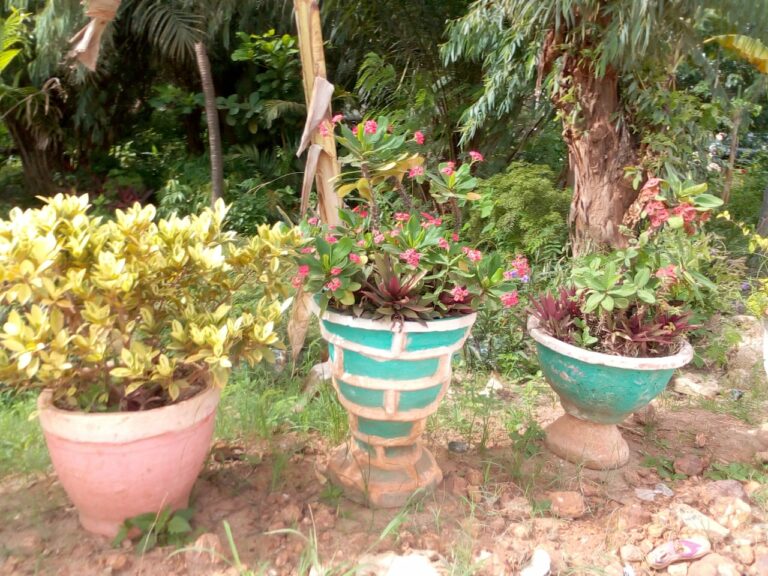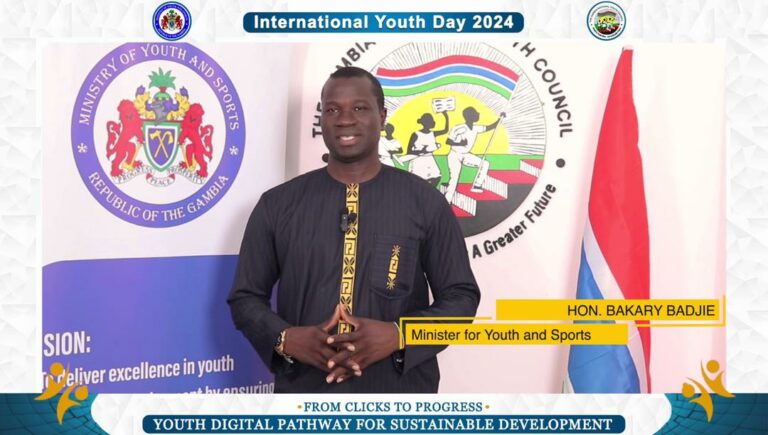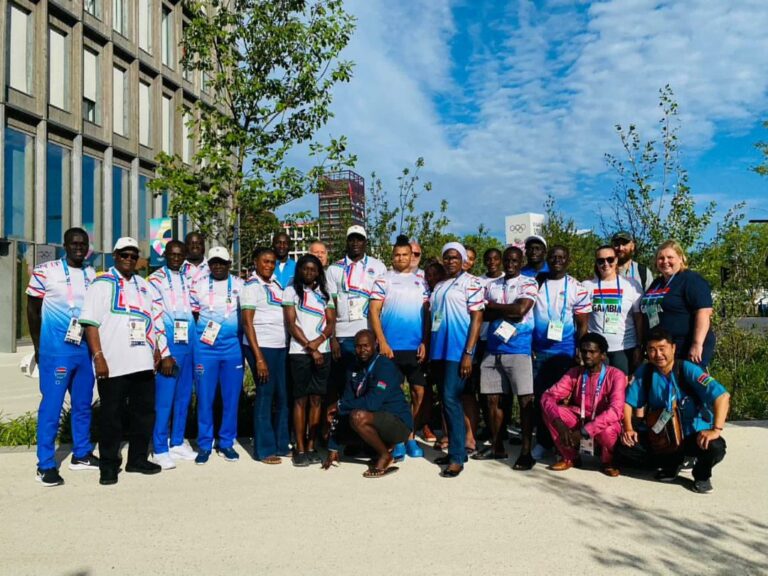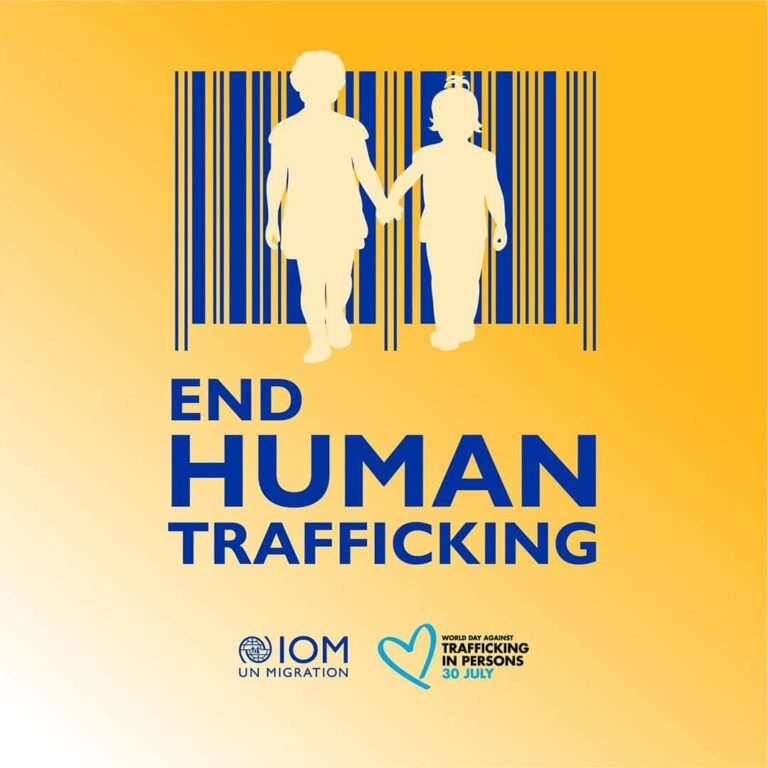By Mouhamadou MT Niang
Resolution Reached: Gambia and Senegal Agree on Border Tracking System
Resolution Reached: Gambia and Senegal Agree on Border Tracking System
Brikama Market Vendors Voice Concerns Over Worsening Conditions as Rainy Season Intensifies
By Mouhamadou MT Niang
Brikama Market Vendors Voice Concerns Over Worsening Conditions as Rainy Season Intensifies
Darboe Family Urges Police Action After President Barrow’s Alarming Remarks
By: Zackline Colley
In a statement addressed to the Inspector General of Police (IGP), the family of Ousainou Darboe, leader of the opposition United Democratic Party (UDP), expressed grave concern over recent remarks made by President Adama Barrow during a political rally in Brikama. The statement, which gained significant attention, highlights the family’s alarm over what they perceive as threats to Darboe’s safety.
At the rally, President Barrow stated, “I swear today that I will be president until Ousainou Darboe dies. That’s the only time I will leave power. But so long he is not dead, I will be president. I will leave only when he dies and we bury him that I will quit as president.” The comments were widely circulated on social media, drawing condemnation from various quarters within The Gambia and the diaspora.
The Darboe family, in their letter to the IGP, emphasized their distress over the president’s statements and questioned the motivations behind such utterances. They expressed particular concern about Darboe’s personal security, citing fears that the president’s remarks could have both intended and unintended consequences.
Ousainou Darboe is the leader of The Gambia’s largest opposition party and has previously served as the country’s Foreign Minister and Vice President. His family underscored Darboe’s commitment to strengthening democracy and promoting good governance, suggesting that his political activities may have triggered the president’s comments.
The statement to the police also referenced President Barrow’s mention of a “contract” in his speech, which has further fueled the family’s anxiety about potential threats to Darboe’s life. They noted that the president’s comments could be interpreted as veiled threats and urged the authorities to be vigilant in safeguarding Darboe’s safety.
“We had wanted to write to you immediately as the IGP and the primary custodian of law and order,” the family stated, explaining their decision to wait until public uproar over the comments subsided before formally addressing the matter. They emphasized that their concerns are not politically motivated but stem from genuine fears for Darboe’s well-being.
The family concluded their statement by formally notifying the IGP of their belief that President Barrow’s statements pose a threat to Darboe’s life. They called for heightened awareness and accountability should any harm come to the opposition leader.
Revisiting the Sunken Billions: The Gambia’s Perspective
Central Bank of The Gambia
Wild-captured fisheries are critical for food security and economic growth. However, poor fisheries management practices have resulted in overfishing, causing fisheries stock depletion. The Gambia provides a remarkable context as nearly 100% of fish protein consumed in The Gambia is sourced from wild catch. Furthermore, the country often signed agreements with the European Union, and China among others to allow foreign fleets to exploit its marine resources in exchange for financial compensation. As a result, The Gambia has paid a price in terms of depleted fish stocks, struggling artisanal fishing and domestic fishing industries. This has heavily contributed to exploitation and overexploitation of marine resources with an estimated total removal of 6 million tonness of fish between 1950-2010 (http://www.sciencedirect.com/science/journal/22114645/17/supp/S1). Therefore, to address the trend of depleting fish stock, understanding the impact of overfishing on prospective catches and revenue losses is critical for informing policy directions.
I analyzed data of total fish catch in tonnes and its estimated economic value in U.S. dollars, using Sea Around Us Database (https://www.seaaroundus.org/). The analysis revealed that from 1950 to 2019, reported catches from industrial and foreign distant-water fishing fleets amounted to 3 million tonnes, with an estimated value of USD 3.4 billion. Intuitively, the illegal, unregulated, and unreported (IUU) catches during the same period totaled 5.2 million tonnes, translating to approximately USD 6.1 billion. Altogether, the combined reported and unreported fish catches between 1950 and 2019 reached a staggering 8.3 million tonnes, valued at around USD 9.5 billion—a figure nearly five times the GDP of The Gambia. The preliminary estimate suggests that only 7% of the reported catch resulted in revenue accrued to the country.
Therefore, The Gambia government should endeavor to introduce a wide range of Marine Protected Areas, introduce and enhance secure tenure systems to strengthen fisheries, and avoid exploitative international fishing agreements.
Africa CDC declares Mpox public health emergency
By Hadram Hydara
The leading health body of the continent, the Africa Centres for Disease Control and Prevention (Africa CDC), has officially declared the current Mpox outbreak (previously known as Monkeypox) as a public health emergency.
“Today, we declare this PHECS to mobilize our institutions, our collective will, and our resources to act—swiftly and decisively. This empowers us to forge new partnerships, strengthen our health systems, educate our communities, and deliver life-saving interventions where they are needed most. There is no need for travel restrictions at this time,” Africa CDC Director General Dr. Jean Kaseya said, highlighting the urgent need for swift and decisive action:
Scientists at the Africa Centres for Disease Control and Prevention (Africa CDC) have expressed alarm over the rapid spread of a new mpox strain.
More than 13,700 cases and 450 deaths have been reported in the Democratic Republic of Congo since the start of the year.
The Africa CDC says at least 13 African countries, including nations previously unaffected such as Burundi, Kenya, Rwanda, and Uganda, have reported Mpox outbreaks.
To date in 2024, these countries have confirmed 2,863 cases and 517 deaths, with the majority occurring in the Democratic Republic of the Congo (DRC). The continent has seen suspected cases soar to over 17,000, marking a substantial rise from the 7,146 cases in 2022 and 14,957 cases in 2023.
The continent’s leading health body describes Mpox as a viral illness caused by the monkeypox virus, with two distinct clades: Clade I and Clade II. Common symptoms include a skin rash or mucosal lesions lasting 2–4 weeks, fever, headache, muscle aches, back pain, low energy, and swollen lymph nodes. The virus can be transmitted to humans through physical contact with an infectious person, contaminated materials, or infected animals.
To address the outbreak on the continent, Africa CDC says it has set up a 25-member Incident Management Team based at the epicenter of the Mpox epidemic with mandate to support affected and at-risk countries.
The agency also confirms it has signed a partnership agreement with the European Commission’s Health Emergency Preparedness and Response Authority (HERA) and Bavarian Nordic to provide over 215,000 doses of the MVA-BN® vaccine—the only FDA and EMA-approved Mpox vaccine. Africa CDC will oversee the equitable distribution of these vaccines, prioritizing local needs across the affected Member States.
Batchilly Accuses Western Democracies of Deep-Rooted Hypocrisy and Double Standards
By: Dawda Baldeh
The leader of the opposition Gambia Action Party, Musa Ousainou Yali Batchilly, has compared Western democracies to hypocrisy and double standards, claiming that they often portray themselves as global democracy custodians but fail to uphold the true principles of democracy.
He criticized the United States for racial disparities within its democracy, France for restricting religious expression under the guise of secularism, and Germany for grappling with resurging racism.
“If democracy truly means allowing individuals and nations to practice their beliefs within the framework of their laws, then the West’s commitment to democracy is nothing short of illusionary,” he asserted.
For Batchilly, democracy in the United States is marred by deep-rooted racial disparities that favor white Americans and marginalize black Americans.
Democracy in France:
According to him, in France, the struggle is against religious expression, particularly Islam.
“The French government’s actions to curb Islamic practices under the guise of secularism are seen by many as an outright assault on religious freedom.
This approach undermines the very principles of liberty and fraternity that France claims to uphold,” he claimed.
Democracy in Germany:
He said that Germany, which has a history and position in Europe, also grapples with a resurgence of racism.
“Discriminatory practices and the rise of far-right movements challenge the inclusivity and tolerance that are supposed to be hallmarks of modern democracy,” he added.
The Gambian opposition leader stressed that the United States’ foreign policy further exemplifies this “geopolitical hypocrisy.”
The GAP leader further claimed that America often supports only those ideologies and regimes that align with its interests, regardless of their democratic credentials.
He cited the production and proliferation of weapons, the support of regimes that engage in human rights abuses, and the selective condemnation of certain nations as double standards and hypocrisy.
“They turn a blind eye to others while supporting Israel.
They also condemned Russia and North Korea for similar actions,” he narrated.
Batchilly described England as a key manipulator and oppressor who always backs America to wage war on any opponent they perceive as a threat.
“They (England and America) are injectors of all crimes against humanity,” he added.
He further condemned what he described as blatant hypocrisy in the West.
He reiterated the need for equal treatment of countries irrespective of their differences.
He called for the United Nations General Assembly to address these issues and establish a more just global order where democracy is genuinely upheld for all nations.
“True democracy must be inclusive, equitable, and consistent—only then can it serve as a beacon of hope for all nations and peoples,” he concluded.
Disputes Over Market Conditions: Brikama Vendors Criticize Unhygienic Conditions Amid Contrasting Views from Market Committee Chairman
By Mama A. Touray
With the rainy season well underway, The Fatu Network visited Brikama central market to assess its condition. The market vendors lamented the state of the market, describing it as ‘dirty,’ while the market committee chairman offered a different opinion, stating the market is clean.
Mariama Keita, a vegetable vendor, speaking about the market’s condition, complained, “The market is not clean, one should speak the truth. Especially when it rains, there is a hole at the other end, and if it fills with dirty, smelly water, it flows to where we are seated. We sit and sell in that dirty, smelly water, which is challenging.”
Keita was quick to add that whenever it rains, the area council, under the leadership of Chairman Yankuba Darboe, usually brings a septic tank to drain the water. If that water is not drained, the dirty, smelly water comes to where they are seated.
She called on the area council to help them get rid of that hole with stagnant water, adding that they pay taxes for the council to help them with better market conditions.
Fatoumatta Sanyang, a fish vendor at Brikama market, lamented, “We are in deep challenge in this market, but you have seen the market. If you are told that human beings sit and sell foodstuff in this market, you will be surprised. The condition of the Brikama market is not appealing at all because we cannot be healthy with the current condition of the market.”
She added that the market committee is not doing anything because they are in opposition, and that working towards the betterment of the market will be hard as the committee and the council are not aligned with the government.
“Despite the dirty condition of the market, every week we pay D25, but even our fish store is not in good condition,” she said.
Meanwhile, the market committee chairman, Foday Manjang, shared a different perspective on the market: “What we have heard about the condition of the market under Chairman Darboe, that it is dirty, is not true. What Yankuba has done in this market, no chairman has ever done it since I assumed the role of chairman of the market committee. He is the fourth chairman, but he has done great work in this market.”
He added that BAC should not be blamed for the condition of the market, as the market is under the fisheries and not the council.
However, he called on the market vendors to throw their trash in the place designated by the council or give it to trash collectors.
Behind the Spotlight: The Role of Music Producers in Gambia’s Growing Music Scene
By: Zackline Colley
In the dynamic world of music, artists often bask in the spotlight, but behind every hit song, there’s a crucial figure working tirelessly in the background—the music producer. These unsung heroes are instrumental in shaping the sound and success of the music industry, acting as the architects of sound. They collaborate with artists to define the overall vision, select instruments, arrange compositions, and ensure the desired emotional impact of a song or album.
Gambia’s award-winning music producer and singer, Joseph, commonly known as JLive, recently shared his insights in an exclusive interview with The Fatu Network. Despite his accomplishments, JLive remains humble about his contributions. “I will not proclaim myself as number one in the game of music production, but my work speaks volumes, so I don’t need to say it,” he stated.
JLive candidly discussed the challenges he faces, particularly in balancing his demanding career with personal time for family and himself. Another significant challenge he highlighted is the lack of recognition from some artists he collaborates with. “You work with artists on projects, and they don’t give you enough credit for your input. Other African artists like Davido and Wizkid travel with their producers for work purposes, but no Gambian artist does that,” he explained. “When I started talking about it, some started to approach me, but that’s hypocrisy to me. Why wait until I complain before you make a move?”
Despite these challenges, JLive remains optimistic about the future of the Gambian music industry. He expressed pride in the industry’s growth, noting that Gambian artists now have sold-out shows at major venues like the national stadium and Qcity. “I am proud of the music industry at the moment because I am part of the people that built it,” he said. “If you look at the artists decades ago that traveled abroad, none would come back to the scene because it was stagnant. But now, a few are coming back because the scene is bigger and a lot better than it was. Artists are filling up the stadiums, making international collaborations, and making a name for Gambian music.”
JLive’s contributions have not gone unnoticed, as he has received multiple accolades, including Producer of the Year 2022 at the Wah Sah Halat Music Awards, among other honors. Beyond his role as a producer, JLive has also ventured into singing, releasing several singles that have further solidified his place in the industry.
The dedication and passion for his craft continue to drive the Gambian music scene forward, ensuring that the country’s sound resonates both locally and internationally. As the industry grows, producers like JLive remain the unsung heroes, crafting the sonic landscapes that define the music of a generation.
Tune in on Thursday evening as the exclusive interview with JLive will be aired, where he discusses many other insights into his journey and the evolving landscape of Gambian music. Don’t miss it!
Latrikunda Yirignya Water Crisis: Residents Endure 3 to 7 Years Without Clean Water as Authorities Fail
By Mouhamadou MT Niang
Latrikunda Yirignya Water Crisis: Residents Endure 3 to 7 Years Without Clean Water as Authorities Fail
ECOWAS Launches Field Evaluation to Monitor Humanitarian Relief for 2022 Flood Victims in The Gambia
By Mouhamadou MT Niang
ECOWAS Launches Field Evaluation to Monitor Humanitarian Relief for 2022 Flood Victims in The Gambia
Ansu Jatta’s Give Back Foundation Network: Transforming School Dropouts into Future Leaders
By: Michaella Faith Wright
Ansu Jatta is a passionate young Gambian on a mission to uplift and empower school dropouts to become valuable members of society through his community-based initiative, the Give Back Foundation Network. Founded without external funding, the initiative focuses on providing vocational education to vulnerable youth, including those with disabilities, girls, and individuals living in rural areas.
As the Founder and Executive Director of the Give Back Foundation Network, Jatta is determined to make vocational training accessible and affordable for those who dropped out of school. His vision extends beyond just education; he aims to create sustainable employment opportunities for disadvantaged youth, minimize crime rates, and address other pressing issues in The Gambia. “I want to see every youth engaged in something meaningful within our society,” Jatta said.
Since its inception nearly a year ago, the Give Back Foundation Network has successfully enrolled eleven youths from the Lower River Region into the University of Education, Science, and Technology (USET), formerly known as GTTI. These students are now gaining hands-on experience through attachments at various institutions, demonstrating the tangible impact of Jatta’s initiative.
However, the journey has not been without challenges. Jatta highlighted the financial difficulties the organization faces, leading them to mobilize funds through individual contributions, donations, and commissions from contracts secured by the foundation. Despite these obstacles, the organization has formed partnerships with key institutions such as USET, BassArts, SaidyKhan’s Decoration and Design Skills Academy, MoHERST, Fo.Co, Tekki Fi, NYP, Brikama Area Council, and other donor organizations to empower young people.
Looking to the future, Jatta envisions expanding the foundation’s reach. “Our main aim is to have more than 300 people acquire sustainable skills through our advocacy in the next three years,” he explained. In five years, the foundation plans to establish a skill training academy where individuals can learn various trades at an affordable cost, furthering the organization’s mission to keep young Gambians engaged and prepared for their future.
The foundation is poised to organize a Skill Training Camp to promote vocational education. The camp will feature hands-on workshops in batik, tie-dye processing, recycling, leadership skills, public speaking, climate change awareness, pitching techniques, and smart agricultural practices. The event will also include fire camps, boat rides, storytelling sessions, pitching competitions, and other recreational activities. “Various speakers will be invited to discuss the importance of vocational education, and donor organizations will be present to offer guidance on gaining financial support,” Jatta noted.
Through his dedication and vision, Ansu Jatta is making a significant impact on the lives of young Gambians, providing them with the skills and opportunities needed to build a brighter future.
Old Yundum Deteriorating Road: NAM Accuses Gov’t of Negligence and Betrayal
By: Dawda Baldeh
The National Assembly Member for Old Yundum Constituency, Abdoulie Ceesay, has accused the government of persistently neglecting the deteriorating situation of the Coastal Road Highway, describing it as a form of betrayal.
Abdoulie Ceesay, who spoke to The Fatu Network, said he has tried everything possible to address the plight of his constituents, citing the road as a major problem.
The Coastal Road Highway serves as a lifeline, connecting countless communities and facilitating the movement of goods and services.
“I have advocated to the extent of sending parliamentary questions to the minister and asking about the plans set aside for the Coastal Road Highway construction. The answer I got was that there are tangible plans for its construction, but we haven’t seen any meaningful steps taken,” he said.
The Old Yundum lawmaker described the current state of the Coastal Road Highway as an “embarrassment.”
“I feel embarrassed as a representative of Old Yundum because seeing them in this condition is heartbreaking,” he added. “Currently, the potholes, cracks, and crumbling shoulders have posed a constant hazard to motorists, cyclists, and pedestrians alike.”
Abdoulie Ceesay asserted that the lack of proper maintenance has rendered this once-important thoroughfare virtually impassable, causing delays and economic losses to the people using it.
“The government’s indifference to this critical infrastructure is a betrayal of its duty to the people it represents,” he lamented, adding that this is further making it more difficult for him as a representative to make people believe what plans are ahead for the road.
He argued that the Minister of Works and Infrastructure has failed to prioritize the safety and well-being of his constituents.
Ceesay stressed the need for the works minister to take immediate action and remedy this “unacceptable” situation.
“The people of Old Yundum constituency deserve better. We will not tolerate the continued neglect of the Coastal Road Highway,” he emphasized.
Disappointed with the current state of the road in his constituency, Ceesay wants the government to act and demonstrate its commitment to the well-being of its citizens.
The Coastal Road Highway is among many within the Greater Banjul Area that are becoming inaccessible, leading to traffic chaos and increased fares as drivers often fear delays and damage to their vehicles due to the rough conditions of the road.
59 Convicted Undocumented Migrants Deported
By: Dawda Baldeh
The Gambia Immigration Department (GID) has deported at least fifty-nine (59) convicted undocumented migrants of various nationalities.
These migrants, who were arraigned at Brikama Magistrates Court a few weeks ago, were convicted after failing to regularize their status in the country, the GID said.
The Public Relations Officer, Chief Superintendent Mamanding S. Dibba, described the deportation of the convicted undocumented migrants as a means to mitigate crimes and ensure the safety of all.
He attributed this development to ongoing GID efforts to curb crimes and address the issues of undocumented migrants.
A few weeks ago, Dibba also urged Gambians to obtain documents and carry them along, warning that people who refuse to obtain documents after reaching the legal age could face prosecution.
According to GID, the affected individuals, all male, were prosecuted and convicted for immigration offenses punishable under Section 31 of the Immigration Act.
It could be recalled that the GID conducted a nine-day enforcement exercise that culminated in the arrest and prosecution of the 59 non-Gambians.
The said exercise sought to curb irregular migration and further regulate matters connected to entry, residence, and establishment in The Gambia by the laws of the land.
While reaffirming its commitment to ensuring a safe and tolerant Gambian society for all, the Gambia Immigration Department urges citizens and residents to be responsible and law-abiding at all times.
Flower Gardeners Share Challenges, Successes of Business
By Michaella Faith Wright
Two horticulturists, who also own flower gardens in Senegambia and work as florists, speak to The Fatu Network about the challenges and successes of their business.
Banjul, The Gambia — Sheriff Krubally, a seasoned flower gardener with over 20 years of experience, shared his journey and the challenges he faces in the flower business in an exclusive interview with The Fatu Network.
Born and raised in The Gambia, Krubally initially served as a soldier before fully embracing his passion for gardening, a craft he began learning even before joining the military.
Krubally attributes his expertise to a Nigerian mentor who taught him the intricacies of the flower business. “I learned a lot from him; he was committed and dedicated to the craft, which inspired me,” Krubally said.
His business, however, is not without challenges. One of the main difficulties he encounters is sourcing flowers and seeds, many of which are not available locally. “I sometimes have to travel to Senegal, Casamas, or even Guinea-Bissau to get what I need,” he explained.
Despite the obstacles, Krubally has managed to establish a loyal customer base. Among the most popular flowers he sells are the Yellow Bush, Yellow Rose, Bamboo Palm, and Royal Palm. However, the rainy season poses significant challenges, as flower sales decline during this period. “In the rainy season, people tend to buy more fruit trees like mango, coconut, and oranges rather than flowers,” he noted.
Krubally emphasized the importance of self-belief and focus on handling competition. “I don’t see rivals; I focus on myself and my business,” he said. His approach to pricing and sourcing is also unique, as he often grows his plants from seeds, giving him an edge in the market.
Another gardener, Nbunde Flipe, who hails from Guinea-Bissau and relocated to The Gambia during the tenure of former President Yahya Jammeh, also shared his experiences. Flipe specializes in various types of flowers, including yellow, green, and red varieties. “The flower business was more vibrant during Jammeh’s time. Now, the rainy season slows down our sales, and we sometimes have to lower prices,” Flipe explained.
Both gardeners stressed the importance of patience and dedication in the flower business. “If you are looking for quick money, this is not the business for you,” Krubally advised. He also highlighted the lack of government support as a major challenge, particularly when road construction projects damage their gardens without compensation.
Despite these difficulties, Krubally remains committed to his craft. “Gambians love flowers, and that keeps me going. I have been able to support my family and employ two staff members because of this business,” he said.
Flipe echoed similar sentiments, noting that the flower business has allowed him to connect with diverse people. “This business requires time and commitment, but it has been rewarding in many ways,” he concluded.
Both gardeners continue to thrive in their profession, driven by their passion and the love Gambians have for flowers.
Sports Ministry Shifts Focus to Sports Infrastructure Development, Unveils New Policy to Boost National Athletic Growth
By Zackline Colley
The Minister of Youths and Sports, Bakary Y. Badjie, has said the government is prioritizing the development of sports infrastructure over participation in international competitions to revamp the nation’s sports sector.
Badjie made these remarks in an interview with Demba Jang Media.
The Minister acknowledged that the government has been actively supporting various sports associations, particularly when they participate in international competitions.
However, he expressed concerns over the internal management of these associations, stating that some only begin to fulfil their responsibilities when faced with the prospect of competing abroad.
“We do sometimes hear noise from associations accusing us of not supporting them. But often, this is because we have told them they are not qualified to go internationally,” he said.
He stressed that the government has established a policy requiring associations to demonstrate proper organization and success at the national level before they can receive support for international participation.
Badjie also revealed that his ministry has reduced its financial support for certain associations, particularly those that have not shown sufficient progress domestically.
“Even when we were preparing for the African Games, we had to remove some disciplines from the list because we hadn’t seen much activity from them in the country,” he said.
A new sports policy has been developed, focusing on the categorization of sports disciplines, with priority given to those deemed essential for the country’s athletic development.
The Minister noted, “We think prioritizing sports infrastructure development should be the key for the next three years. This will allow us to create a strong pool of athletes.”
Addressing the regulatory challenges faced by the National Sports Council, the Minister admitted that the current legislative framework does not grant the council sufficient authority to oversee and regulate sports associations effectively.
“What we had before was just a National Sports Council Act, which establishes a council but does not give it a lot of powers to regulate the associations and sports in the country,” he explained.
To tackle this issue, the ministry has developed a new Sports Bill, which is currently under review. Once passed, the bill will empower the council to enforce regulations, establish a sports tribunal, create an anti-doping platform, and introduce a sports development fund.
“We hope this will bring sanity to the sports sector,” Badjie said.
Gambia Celebrates International Youth Day 2024 with Focus on Digital Pathways for Sustainable Development
By: Zackline Colley
The Gambia joined the global community in celebrating International Youth Day on August 12, 2024, highlighting the critical role of young people in advancing digital technologies and contributing to sustainable development. This year’s theme, “From Clicks to Progress: Youth Digital Pathways for Sustainable Development,” underscores the importance of youth-driven digital innovations in achieving the Sustainable Development Goals (SDGs).
In his address, the Minister of Youth and Sports, Bakary Badjie, emphasized the significant contributions of young Gambians to the digital economy. He noted that the theme “highlights how young people drive digital technologies to advance progress towards achieving the SDGs.”
Minister Badjie outlined the government’s efforts to foster a robust digital environment through the recently launched National Digital Economy Master Plan 2023. This initiative aims to promote digital inclusion, create jobs, and spur economic development by connecting the unconnected and enhancing digital infrastructure across the country.
“The Recovery Focus National Development Plan ‘Yiriwaa’ 2023–2027 highlights critical pillars for enhancing our digital landscape,” Badjie said. These pillars include creating an enabling environment with supportive policies and regulations, building inclusive digital infrastructure, fostering digital innovation and entrepreneurship, and developing digital skills and human capital.
The minister also highlighted the government’s commitment to providing access to ICT training facilities across various youth centers in rural Gambia, including Jarra Soma, Bansang, Janjanbureh, and the soon-to-be-operational Farafenni center. “These centers are offering training opportunities that can help enhance the digital skills of young people who otherwise might not have had the capacity,” he stated.
In addition to government efforts, Minister Badjie acknowledged the role of partners like the UNDP Accelerator Lab in supporting young entrepreneurs and informal traders through initiatives like the “My Lumo” digital e-commerce platform. “This platform is providing a huge market opportunity for young entrepreneurs to market and sell their goods to customers,” he added.
As the digital economy continues to evolve, Minister Badjie emphasized the growing demand for advanced digital skills, particularly in areas like coding and robotics. He praised the achievements of young Gambians who have excelled in robotics competitions abroad and are developing apps that improve the business landscape in the country.
To conclude, Minister Badjie reassured the public of the government’s commitment to supporting the digital transformation. “The government will continue to provide the necessary policy and regulatory environment, including needed resources, to continue to leverage the potentials of the digital environment,” he said.
As the nation celebrates International Youth Day 2024, Minister Badjie called for continued collaboration and partnership to harness the potential of the country’s youth. “I wish you all a happy celebration of International Youth Day 2024, and I invite you all to collaborate and partner with us to harness the demographic potential of our youth to transform education, economic growth, peace, and prosperity in The Gambia,” he concluded.
Gambia Come Short in 2024 Paris Olympic Games
By Zackline Colley
Hopes were high for The Gambia’s athletes as they competed in the 2024 Olympic Games in Paris, but the nation’s representatives fell short of the medal podium despite some promising performances.
Gambian track star Gina Mariam Bass Bittaye, who had recently secured gold medals in both the 100m and 200m races at the All-Africa Games in Ghana, was unable to replicate her success on the Olympic stage. In both the 100m and 200m events, Gina failed to advance to the finals, marking a disappointing end to what had been an otherwise stellar season.
On the men’s side, sprinter Ebrima Camara provided a glimmer of hope when he advanced to Round 1 of the Men’s 100m after dominating his Preliminary Round Heat with a time of 10.29 seconds. However, Camara narrowly missed out on a place in the semifinals, finishing 4th in his heat with a national record time of 10.21 seconds.
The Gambia’s judo representative, Faye Njie, who had previously won a silver medal at the Commonwealth Games, was also unable to progress in his event. Competing in his third Olympic appearance, Njie was penalized for non-combativity after receiving two cautions, which ended his hopes of advancing to the next round.
Sanu Jallow represented The Gambia in the 800-meter event. While she broke a national record, her performance did not meet the expectations of fans who were hoping for more substantial results.
Gambian Taekwondo fighter Alasan Ann faced off against Croatian Ivan Sapina in the +80kg Round of Sixteen. Ann, a two-time medallist in the men’s 87 kg event at the World Taekwondo Championships and a gold medallist at the European Taekwondo Championships lost 2-0 in the second round to Sapina, bringing The Gambia’s Olympic campaign to a close.
While the results may not have been what Gambians were hoping for, the athletes have still shown resilience and dedication on the world stage, and their efforts will continue to inspire the nation.
BAC revenue collector embraces audit findings: Admits to D8000 revenue shortage to LGC
By Mama A. Touray
Lamin Saidy, in his second appearance before the ongoing Local Government Commission of Inquiry, testified on the D8000 revenue shortage flagged in the council’s 2020 internal audit report.
According to page 32 of the 2020 Internal Audit Report, the auditors flagged that Lamin Saidy has a cash shortage of D3000 and D5000.
Reacting to the internal audit report’s assertion, Saidy said: “I can agree with this, but I was not called or talked about the findings”.
The report further flagged that Lamin Saidy had not posted his collections in the cash book to which he responded: “I have never been in their office. I have never been audited based on my knowledge during this time”.
Lead Counsel Patrick Gomez asked Saidy why his entries in the cash book stopped in January 2022, omitting the other months and without records for 2023.
When Counsel Gomez questioned whether his entries for the following months were absent, Saidy replied: “I have all the receipts with me. I did not record my collections. The revenue collection devices were introduced, and we were promised that they would bring forms for us to record our collections. The forms were never brought”.
Lead Counsel Gomez informed Saidy that the machines were accounted for in the cash book he supplied, which recorded collections from 2021 through February 2022.
This contradicted Saidy’s testimony that he wasn’t recording because he was operating the machine and awaiting the forms. He then promptly revised his statement, saying, “We were asked to stop recording.”
Counsel Gomez referred the witness to the cash book he produced to account for the collections. He claimed that he had deposited in the Vista Bank and GT Bank.
He was referred to the Finance Unit of the Commission to do reconciliation. He will reappear before the Commission when the process is done for further hearing.
Right Choice Supermarket General Manager Addresses Allegations of Theft, Sales of Expired Products, and Cheating of Customers
By Dawda Baldeh
Ram M. Aswani, the General Manager of Right Choice Supermarket, has reacted to grave accusations involving a senior branch manager, including theft, selling expired food items, cheating customers, and maltreating staff.
Following our Thursday publication which drew widespread condemnation implicating Jagdish Shivvani, the Brusubi branch manager, for theft and fraudulent practices, including manipulating transactions, Aswani spoke exclusively to The Fatu Network and described the allegations as serious, stating they could tarnish the reputation of Right Choice, a company that has operated in the country for 24 years.
“I was shocked and disappointed when I saw these allegations,” he said, adding that he would take serious action against any individual who is engaged in fraudulent activities in the company.
In response to allegations of customer theft, Mr. Aswani called on any customer who had such an experience to report directly to him.
“I don’t take theft lightly from anyone. If a customer feels he/she is manipulated by any staff at Right Choice, let the person report to me then I will deal with the situation,” he said.
“I don’t joke with my customers because they are the bosses. It doesn’t matter whether it’s an Indian or a Gambian, anyone who cannot treat my customers right, I will sack the person,” he added.
Mr. Aswani stressed that he cares for his and the company’s reputation, highlighting the hard work he has put into earning his customers’ trust.
He confirmed that Indian staff are not allowed to sit at the teller box while denying allegations of the supermarket selling expired food products, saying Right Choice does engage in such practices.
“We don’t sell expired food products in our supermarkets. You can go and conduct your independent investigations and see it yourself,” he said.
According to him, they do conduct discounts for products that are near expiry to avoid loss of income.
“When a product is about to reach the expiry date, we reduce the price. For example, if the previous price is D100, we will reduce it to D75, and when the date gets closer like two or three months, we reduce the price further just to make sure people can buy before they expire,” he said.
The Right Choice boss also clarified the issue of stickers pasted on certain products indicating a manually installed date after we presented evidence of such before him.
The head of Right Choice further addressed the issue of stickers being affixed to certain products, which suggest a manually set date, following our presentation of photographic evidence of such acts before him.
“These are Indian food products which we import from India and our supplier is having issues printing the expiry date.
“We import the products with the stickers and paste them manually. Let me give you an example, a toothpaste imported from India, or another country will have the expiry date, but a toothpaste imported from England doesn’t have that,” he said.
The Fatu Network was able to obtain a document seemingly supporting Mr. Aswani’s claims.
A document from a food supplier from India dated 24th January 2022 named (Novas Implex) reads: “This is to inform you that we had a problem with our shelf life printing machine system for Virasat Indian Spices at the time of shipment in June 2022 for Right Choice Supermarket Ltd, Banjul, The Gambia. Instead of machine printing of shelf life, we have done stickers on each product’s packet which are genuine.”
These items imported in 2022 are listed in the document numbering 17 different Virasat Indian spices.
On Staff Maltreatment
Mr. Aswani urged staff to report directly to him whenever they are treated otherwise by anyone.
“My staff are my family, and their welfare is my concern. If a staff member is maltreated, let the person report to me. I will take care of the person. You can ask the staff. Maybe you can have one or two who might have a different view.
“When a staff member falls sick, if the person goes to any hospital [and] if he/she is back, I just ask how much is the cost of your medication and I do pay for it all,” he claimed, adding that his staff are all equal to him.
Mr. Aswani also apologized to all his customers for any inconvenience these allegations may cause.
“I am a human being and if someone feels I’m wrong, let the person tell me and I will apologize and correct the wrong. I am not perfect, and I don’t support wrongdoings,” he said.
He also expressed disappointment with The Fatu Network for publishing the story without getting his version [note: The Fatu Network contacted the Brusubi branch manager, who is actually the one facing the accusations, but he declined to comment].
On the part of his implicated Indian staff, Mr Aswani vowed to deal with him, saying he doesn’t tolerate indecent behaviour.
To the International Organization for Migration (IOM)
OPINION
By Yahya Sonko, Migration & Human Right Activist
To the International Organization for Migration (IOM),
As a dedicated supporter of your mission to end human trafficking, I commend the significant efforts you have undertaken globally, and specifically in The Gambia. However, it is evident that the battle against this grievous issue is far from over, particularly in our local communities where human traffickers and smugglers continue to operate with alarming ease.
Every day, small fishing boats leave from our villages, carrying hundreds of young people, teenagers, and children, embarking on perilous journeys across the Mediterranean Sea in hopes of reaching Europe. These deathly trips are often organized within our communities, with rumors spreading well before departure, yet action against these traffickers remains insufficient.
The traffickers live among us, and it is only through a concerted effort by government bodies, NGOs, and the villagers themselves that we can hope to dismantle their operations. While IOM has done commendable work in building the capacities of our immigration departments, police, and journalists, it is imperative to extend these efforts further into the grassroots level.
I urge IOM to intensify its focus on training and informing villagers, village development committees (VDCs), Alkalos, prominent village associations, and KAAFOs heads. By empowering these local leaders and communities with knowledge and resources, we can create a united front against human trafficking.
It is time for all of us—government entities, NGOs, and villagers alike—to work hand in hand to eradicate the traffickers who are exploiting our youths. We must act now to protect our children and secure the future of our beloved Gambia.
Together, let us stand for the interest of our mother Gambia and put an end to this modern-day slavery.

